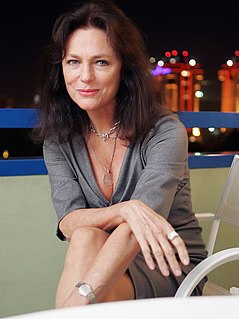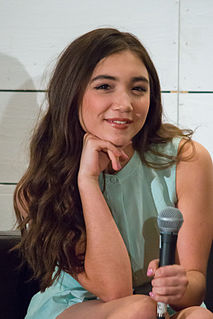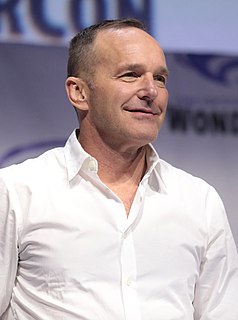A Quote by Jill Talbot
One of my friends who writes novels says that once the book is published, it's a separate thing from you; it becomes its own. I feel that way when I read - and that applies to the experience of reading my work in public, too. The essays are a barrier between me and the audience, and it feels like a disappearing act. Poof! I'm gone, and the woman I've created on the page emerges.
Related Quotes
I feel that I'm an essayist and that my best work gets done in that form. I wanted to do a book where the essays could exist on their own terms. A book that was neither a book of essays that were shoehorned into a memoir, nor [one where] the essays had been published elsewhere first, [because] then they would kind of bear the marks of those publications.
In our time, we have become too interested in the artist and his or her character and experience as a way of understanding art. In my view, you should be able to read a book or see a film without knowing a single thing about conditions or circumstances or character of the artist, and experience the work to the full without such information. Sometimes I feel - speaking for myself - that people know much too much about me, and I wish people knew less and could just read these books and respond to them purely as words on a page.
With the audience I write for, I want to make sure that the reader is eagerly turning every page. I want each of my books to be an absorbing reading experience, an authentic piece of literature. The worst thing that can happen is for a book to have a chilling effect on the reader, to have a kid pick it up and look at a bunch of footnotes and think, No, I'm not going to read this, it's too intimidating.
That's the thing: once it's in their hands, it's not my book anymore, it's theirs. I have no idea what happens when they start to digest it. So when someone writes me to explain how they read it, what it was like, what they enjoyed, there's a thrill. Writers who don't make their email addresses public are missing out on something wonderful.
I read continually and don't understand writers who say they don't read while working on a book. For a start, a book takes me about two years to write, so there's no way I am depriving myself of reading during that time. Another thing is that reading other writers is continually inspiring - reading great writers reminds you how hard you have to work.
I like reading books with both hands, with my heart pumping, with blood on the page. So I'm interested in people who make stuff, and I'm interested in the lives that make the text. To read a book or watch a movie any other way, to me, personally, feels like a waste of time and misapplication of energy.
The Catcher in the Rye had such a deep impact on me, because it felt like it was just Holden and me. I didn't feel like any other person had read that book. It felt like my secret. Writing that I identify with feels like it's just me and the writer. So I hope that whoever is reading what I do feels like that.
The Bible is forbidding when you start to read it. The language is odd. The stories start and stop herkily-jerkily. The characters behave in inexplicable ways. It takes a little bit of time to get into the rhythm of the book. I found reading the first 15 chapters of Genesis very very difficult. Once I got past there, I loved reading, and found it very easy. When you get used to the Bible, it becomes thrilling to read (like any great book - I just had exactly the same experience with the Odyssey).
As for the differences between audio and the printed page, the sonic aspects of poetry are important to me. I read my poems aloud to myself as I'm composing them. And I enjoy reading to an audience. I think people get tone more easily when they hear a writer read her work. Some people have told me they hear more humor in my poems at a live reading than when they see them on the page. I think that may be a matter of pacing. On the other hand, I've listened to a lot of poetry readings and I know how much you can miss. If you stop to really register one line, you miss the next three or so.
































